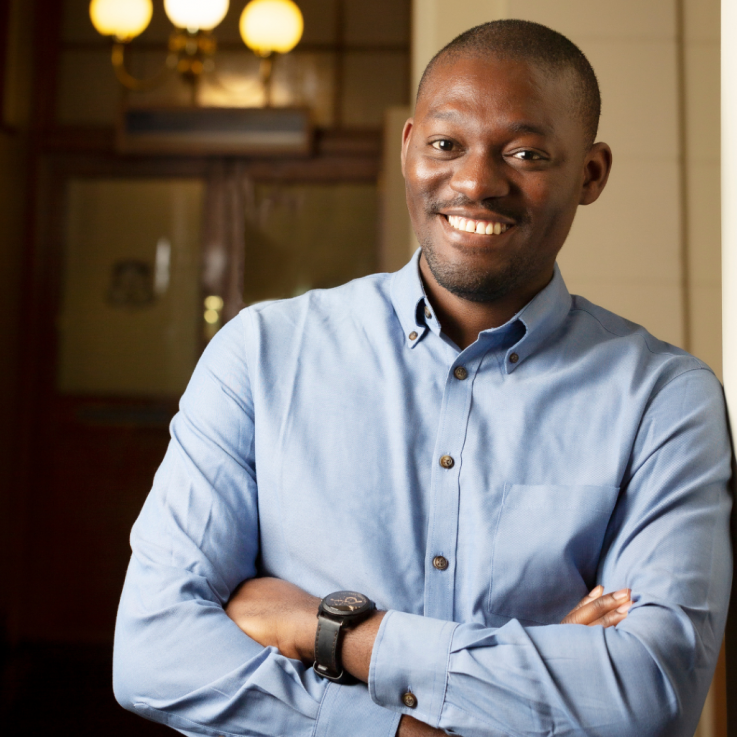Dr Seye Abimbola is a health systems researcher and one of the world's leading scholars and voices on decolonizing global health. His first exposure to social determinants of health came during his mother’s midwifery work which he witnessed during childhood. He continued to see inequity in health while working at the Nigeria Ministry of Health where he observed a disconnect between those in power understanding the needs of the community being served.
In his lectures, which are recorded and linked below, he shares insights about speaking up about injustices and undoing unfair knowledge practices in global health.
Additionally, Dr. Abimbola sat down with us to discuss how he became interested in global health inequities, why we must act now in undoing such inequities, and shared resources for reading and learning more on the topic.
How and why did you become interested in global health inequities, and unfair knowledge practices in global health?
I grew up around a lot of health inequities. My mother was a midwife and provided pro-bono services mostly from our living room, so I often overheard many consultations as a young child. This made me understand early on how health is made and unmade, what we now call the social and political determinants of health.
Early in my career, I worked at the Ministry of Health in Nigeria and experienced a deep disconnect there. There was a distance from the needs and realities of the people I grew up around, and the people at the national level just didn’t get it. Even though these same people at the Nigerian Ministry of Health had a similar upbringing to mine, a socialization process that happens through colonially determined education, where having power disconnects you. I've always been interested in what social or physical distance does to our ability to really see and know and see through the eyes of people on the other end of our power and initiatives. And how that social and physical distance are fertile breeding grounds for all sorts of unfair knowledge practices.
Why is now the time to discuss undoing unfair knowledge practices in global health?
It's taken a long time for many people to start talking about unfair knowledge practices together and in a pointed way. The literature describing these unfair practices has grown in the last 5 or so years, and brought them to the surface, often with clear articulations of the problems, but also of potential solutions. With that has come an interest to undo them, collectively. So, the timing is right to start thinking about what the leverage points are for bringing about change in the knowledge ecosystem of global health.
How should universities change how they conduct research and teach global health, in light of the above inequities you describe?
It is important that we create structures that allow us to ask in a very serious way if we are the right person or university to be doing research on X in place Y at time Z; to ask ourselves what our primary role really is as people who do research that seeks to reduce or eliminate health inequities; and to ask ourselves what it would take to go upstream with our research and why we tend not to ask questions that challenge entrenched power. It is important to not go for easy, shiny solutions that stop at the cosmetic. It is important to always search ourselves for under-representation of marginalized people at the seat of power, but far more important is to ensure that we have rules in place to default us to fairness in research engagements, rules we are willing to hold ourselves to, that we teach students on those rules and we model fair engagement for them. We need to constantly interrogate the politics of how we choose our research questions, methods, and modes of dissemination, how we decide what interpretive frames we place on the social realities and systems, and how we divest ourselves from our own power, the power of our own centrality in global health.
When I teach global health students at the University of Sydney, I try to help the students see the link between what it will take to eliminate health inequities between Indigenous people and other Australians - and what it will take to eliminate health inequities between Nigeria and Britain. I try to help them see that both inequities are underpinned and sustained by the same forces, and that they should not think they can be of use in Nigeria if they cannot be of use at home, that to understand inequities in Nigeria is to understand inequities at home
What recent articles by you would you suggest to students studying or working in the field of global health?
- MS Khan, T Naidu, I Torres, MN Noor, JB Bump, S Abimbola. 2024. The Lancet and colonialism: past, present, and future. The Lancet 403 (10433), 1304-1308
- S Abimbola. 2023. Knowledge from the global South is in the global South. Journal of Medical Ethics 49 (5), 337-338
- S Abimbola. 2023. When dignity meets evidence. The Lancet 401 (10374), 340-341
The DGH community gathered for Conversation with Seye Abimbola on Wednesday, April 24 in which Dr. Abimbola discussed knowledge practices in global health.
Conversation with Seye Abimbola Recording
The broader university community gathered for a lecture on Undoing Unfair Knowledge Practices in Global Health with Dr. Abimbola on Thursday, April 25.
